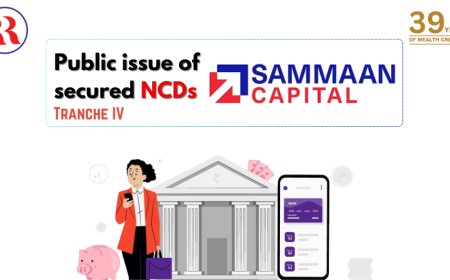Fintech 2025: Digital Wallets Reshape Global Payments
Digital wallets are leading the fintech revolution in 2025, transforming how people pay, save, and invest with faster, safer, and more inclusive finance tools.
Digital wallets have become a core part of financial technology in recent years, and by 2025, theyre taking an even more central role. As global payment systems evolve, digital wallets are streamlining transactions, cutting costs, and improving access. Their role has grown not only in developed nations but also in emerging markets. Businesses and consumers are both adapting to this shift at a rapid pace. Even lifestyle sectors like vaper communities are witnessing more seamless purchases and quicker service through these tools.

Rise of Digital Wallets in Global Finance
Digital wallets, also known as e-wallets, allow users to store payment information and make transactions via smartphones or other digital devices. As of 2025, the global e-wallet user base has surpassed 3 billion, driven by the rapid growth in mobile phone penetration and improved financial infrastructure. Governments, banks, and fintech companies are all supporting the development of wallet services to reduce reliance on cash and traditional banking.
Key Drivers of Growth:
-
Mobile Phone Access: Affordable smartphones have made digital wallet usage feasible across regions, including rural areas.
-
Contactless Payments: Health and convenience concerns have pushed more consumers toward touch-free transaction options.
-
Government Initiatives: Countries like India and Brazil have expanded support for UPI-like payment systems, encouraging citizens to adopt digital payment tools.
-
Retailer Integration: More local and international businesses now accept digital wallet payments, from grocery stores to online streaming platforms.
Security and Regulatory Advances
Security has always been a central concern in financial transactions. Digital wallets in 2025 are far more secure than their earlier versions due to biometric verification, tokenization, and strong encryption protocols. Governments have worked closely with financial institutions to create regulatory frameworks that promote transparency, protect consumers, and build trust.
Security Features in 2025:
-
Biometric Authentication: Fingerprint and face ID login prevent unauthorized access.
-
AI-Based Fraud Detection: Real-time monitoring of user behavior flags suspicious activity.
-
Tokenization: Card numbers are replaced with encrypted tokens during transactions.
-
Two-Factor Authentication: Combines passwords with secondary verification for added safety.
The development of secure digital IDs has further allowed seamless onboarding and KYC (Know Your Customer) processes for users, making digital wallets more efficient and legally compliant.
Impact on Small Businesses and Cross-Border Trade
Small and medium-sized enterprises (SMEs) are benefiting significantly from the spread of digital wallets. In many regions, small retailers previously limited by cash-only systems now accept digital payments, opening up new customer bases and reducing transaction times.
In cross-border trade, digital wallets have simplified foreign currency transactions and reduced the need for third-party remittance services. Companies dealing in international markets now handle transactions faster and at lower fees.
SME and Trade Benefits:
-
Reduced Transaction Fees: Digital wallets often have lower charges than credit cards or banks.
-
Instant Settlement: Businesses receive funds in real time, improving cash flow.
-
Access to Global Markets: Even micro-enterprises can now sell and accept payments worldwide.
-
Digital Recordkeeping: Automated tracking and reporting make bookkeeping easier.
Digital Wallets and Lifestyle Integration
By 2025, digital wallets are not just a tool for banking; they are integrated into everyday lifestyles. Whether it's booking a cab, ordering food, or subscribing to streaming services, digital wallets handle these transactions in seconds. The technology is also widely used in ticketing, toll payments, parking, and public transport.
Popular apps like Apple Pay, Google Pay, Paytm, PhonePe, and newer entrants in local markets now come bundled with value-added services. Users can pay utility bills, invest in mutual funds, get credit access, and purchase insurance all through one wallet interface.
In particular, lifestyle-based micro-transactions have grown significantly. For example, hobby communities such as gaming, music, and even vape smoke product users frequently make low-value purchases through digital wallets. These small but consistent payments add up to major volumes in transaction data and economic activity.
-
Digital wallets are reshaping the payment landscape in 2025 with increased adoption across regions and demographics.
-
Enhanced security, regulatory support, and convenience are the main reasons behind their rapid expansion.
-
Businesses especially small and cross-border ones are gaining from faster, lower-cost transactions.
-
Everyday life is now deeply tied to the use of digital wallets, from travel to leisure spending.
The evolution of financial technology continues to align with consumer behavior and global economic trends. As users seek ease, speed, and security in their financial interactions, digital wallets are positioned to play a dominant role for years to come.





































